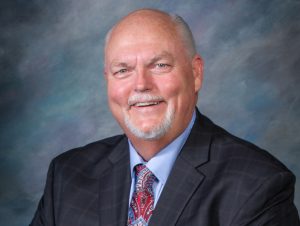Pastor to Pastors Uses LFYS Profiles to Connect, Affirm, Resource, and Encourage Leaders
During the nineteen years that Ron Martin pastored local churches, he observed increasing isolation among ministers and people in general.
He saw pastors and colleagues push through the vocation’s season-after-season pressures with little accountability, lack of affirmation, and even absence of support. Leaders were compromised or they left the ministry altogether – and it bothered Ron more than a little.
So he moved into a different ministry role: as a pastor to pastors and members in his denomination.
After his first pastoral stint, Ron served as State Youth and Christian Education Director in Missouri and northern Ohio. He returned to the pastorate for 13 years and then moved into an administrative role, becoming an Administrative Bishop for the Church of God.
But his job in administration involves much more than paper pushing. “God gave me a heart to help leaders so the enemy doesn’t remove them from serving,” says Ron.
His calling came with a very specific message.
Care for Leaders
Ron’s call was clarified by God on the first night after leaving the local church ministry. It came in the form of the acronym CARE: Connect leaders and people to God and each other, Affirm them, Resource them, and Encourage them.
In the years Ron has been working with leaders, he has seen how those four elements combat the isolation so many of them experience. “We want our churches and people to be whole,” says Ron. “My calling is to help people be who God called them to be.”
The Leading From Your Strengths process has become a big part of that call. Ron heard Rodney Cox speak at a leadership conference and was immediately hooked. “Rodney’s presentation was only an hour long, but struck a chord,” said Ron. “It clarified what God had been speaking to me and gave me a powerful tool to use with those I serve.”
That summer, Ron was in the middle of moving from his position in the Great Lakes region to become Administrative Bishop in Ohio, but nevertheless he attended the Ministry Insights Equipping Conference in July and became certified. “I had already determined I was going to use the profiles in my new job,” he said.
He put the LFYS process into practice right away as he led team building in state board and youth board conferences. The data and process allowed Ron to work with his new team members to put people in the right positions, even though he had just taken on his new role and did not yet know many of them personally. Soon after that, Ron began introducing the profile to his state’s 200 pastors and 815 credentialed ministers. “My goal was that they go back home and teach it to their leaders.”
Those strides continued the following year when Ron returned to the Ministry Insights Equipping Conference, taking six pastors with him. Those men became certified and as soon as they returned home, they began sharing the profiles with their teams and churches.
Build Community
As Ron talks about the challenges he sees for leaders in today’s workplace, he recalls the territorialism he observed his seven years as a policeman and nearly two decades as a pastor. Leaders are easily misled into guarding their turf, which contributes to isolation.
But the LFYS assessment helps people to take an honest look at themselves, he says, and stresses the principle of interdependence.
“If you lose an arm in a wreck, you wouldn’t replace it with a leg,” says Ron. While the institutional approach to growth emphasizes facing weakness and plugging holes, LYFS focuses on building a sense of community. The profile helps leaders, teams, and churches focus on who God created them to be and affirms each one’s value in age when enemy wants them to be dis-valued. Each individual has a role to play whether it’s at the local church level or as part of larger institutional management.
The LFYS profile assessment is now a requirement for all freshman pastors in Ron’s region, helping them to identify their call, grow in their call, and instill value in those they lead. Meanwhile, Church of God leaders all across Ohio are plugging in the profile with their teams, from staff members to laity to outreach for business leaders, allowing them to connect, affirm, resource, and encourage each other.
Churches – and leaders – are stronger for it. “In police work, profile assessments save lives,” says Ron. “In the church, the LFYS assessments save communities.”
Because leaders and their followers are not as isolated anymore.
More Ways Leaders Use the Profiles
Leaders: Profiles Help Three Pastors Successfully Transition to New Team Model

